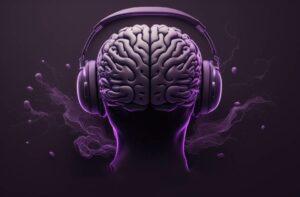The visual cortex is a region of the brain responsible for processing visual information received from the eyes. It plays a crucial role in visual perception, including the recognition of objects, the interpretation of shapes, colours, and motion, and the formation of visual memories.
Located at the back of the brain in the occipital lobe, the visual cortex consists of several interconnected areas that work together to analyse and make sense of visual stimuli. The primary visual cortex, also known as V1 or the striate cortex, is the first stage of visual processing, where basic features of visual stimuli, such as edges, orientations, and contrasts, are detected.
As visual information progresses through the visual cortex, it undergoes hierarchical processing in different regions. These regions are involved in more complex visual functions, such as object recognition, face perception, spatial navigation, and motion processing. For example, the ventral stream processes information related to object identification and recognition, while the dorsal stream is involved in processing visual information for spatial awareness and guiding actions.
Neurons in the visual cortex are arranged in columns and respond selectively to specific visual features. Some neurons are sensitive to orientation, others to colour, and some to motion. This specialisation allows the visual cortex to analyse different aspects of visual stimuli in parallel and integrate them to form a coherent perception of the visual world.
The visual cortex receives input from the eyes through the optic nerves, which transmit visual information from the retina to the brain. The information is then relayed to the visual cortex, where it undergoes complex processing and interpretation. Feedback connections from higher-level brain regions also influence the processing in the visual cortex, shaping visual perception based on previous experiences and expectations.
Damage or dysfunction of the visual cortex can lead to various visual impairments. For example, damage to specific areas of the visual cortex may result in visual field defects, where individuals have difficulty perceiving objects or information in certain parts of their visual field. Other conditions, such as prosopagnosia (face blindness) or visual agnosia (inability to recognise objects), can arise from disruptions in the visual processing pathways within the cortex.
Research on the visual cortex has provided valuable insights into the neural mechanisms underlying visual perception. Techniques like functional magnetic resonance imaging (fMRI) and electrophysiology allow scientists to study brain activity in the visual cortex and understand how different visual stimuli are processed and represented in the brain.
Visual cortex
Understanding the visual cortex can help by:
* Enhancing visual memory: Recognizing the role of the visual cortex in processing visual information can help you develop strategies for improving your visual memory, such as using visual mnemonics or creating mental images.
* Utilizing visualization techniques: Visualization techniques can engage the visual cortex, helping you manage stress, improve focus, and enhance motivation by imagining positive outcomes or calming scenarios.
* Supporting learning: Understanding how the visual cortex processes information can help you develop more effective learning strategies that incorporate visual aids, such as diagrams, charts, or mind maps.
* Enhancing visual memory: Recognizing the role of the visual cortex in processing visual information can help you develop strategies for improving your visual memory, such as using visual mnemonics or creating mental images.
* Utilizing visualization techniques: Visualization techniques can engage the visual cortex, helping you manage stress, improve focus, and enhance motivation by imagining positive outcomes or calming scenarios.
* Supporting learning: Understanding how the visual cortex processes information can help you develop more effective learning strategies that incorporate visual aids, such as diagrams, charts, or mind maps.
The visual cortex impacts your perception of the world by:
* Interpreting visual input: The visual cortex processes the raw visual data received from your eyes and transforms it into meaningful information, allowing you to recognize objects, faces, and scenes.
* Determining spatial relationships: The visual cortex plays a crucial role in understanding the spatial layout of your environment, enabling you to navigate and interact with the world around you.
* Detecting motion: The visual cortex is responsible for detecting and processing motion, allowing you to perceive moving objects and respond appropriately.
* Interpreting visual input: The visual cortex processes the raw visual data received from your eyes and transforms it into meaningful information, allowing you to recognize objects, faces, and scenes.
* Determining spatial relationships: The visual cortex plays a crucial role in understanding the spatial layout of your environment, enabling you to navigate and interact with the world around you.
* Detecting motion: The visual cortex is responsible for detecting and processing motion, allowing you to perceive moving objects and respond appropriately.
Damage to the visual cortex can lead to various visual impairments, such as loss of peripheral vision, difficulty recognising objects, or even complete blindness. Such impairments can significantly impact an individual's mental well-being, leading to feelings of frustration, isolation, and depression. In such cases, seeking professional help from a mental health specialist or therapist can provide valuable support in coping with the emotional and psychological challenges associated with visual cortex damage.
Related Semantic Entities for Visual cortex
